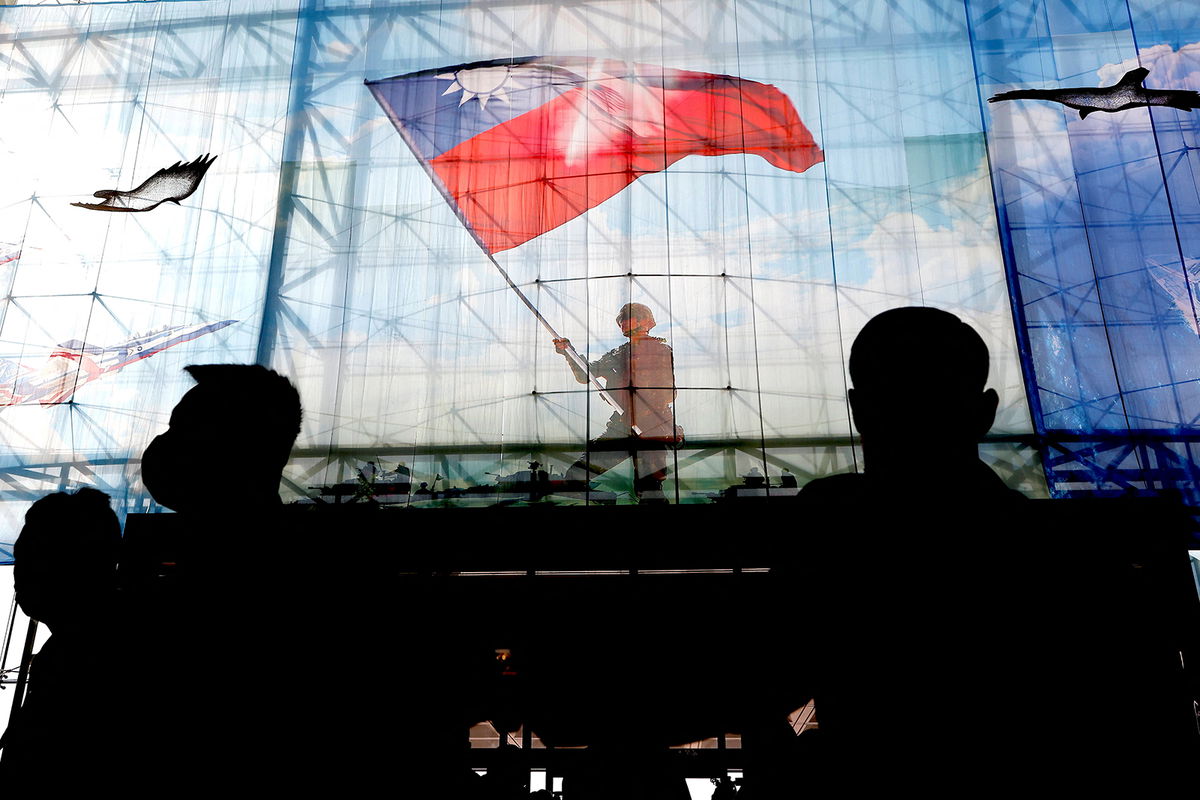Taiwan extends mandatory military service period to counter China threat

Taiwanese flags are seen at the Ministry of National Defence of Taiwan in Taipei
By Eric Cheung, CNN
Taiwan will extend the period of mandatory military service for all eligible men from four months to a year amid rising threats from China, President Tsai Ing-wen said at a news conference in Taipei on Tuesday.
Four months of mandatory military training can “no longer suit the needs” of Taiwan’s defense, she said, adding that while extending the service period was a “difficult decision,” it was necessary for safeguarding the island’s democratic way of life.
“Nobody wants war. The Taiwanese government and its people do not want it, nor does the international community want it. But peace does not fall from the sky,” she said.
“We need to actively prepare for war to prevent war, and we need to be able to fight a war to stop a war.”
The new conscription period, which be implemented at the start of 2024, will apply to men born after 2005, she said.
The move marks a U-turn for Taiwan, a self-governing democracy of 23.5 million people, which had shortened mandatory conscription from one year to four months as recently as 2018.
It comes as China increasingly asserts its territorial claims over Taiwan, which the ruling Chinese Communist Party in Beijing has never controlled, including sending 47 aircraft across the median line of the Taiwan Strait on Sunday — its largest incursion into the island’s air defense zone in recent months.
According to Taiwan’s Defense Ministry, all conscripts under the new system will be required to undergo eight weeks of basic military training, before 44 weeks of ground training.
The monthly salary of conscripts will also be raised from about $195 to more than $650 per month, Tsai said.
“Maintaining peace is reliant on national defense, and national defense relies on every citizen,” she said.
A White House spokesperson welcomed Taiwan’s announcement in a statement to CNN, saying it underscored “Taiwan’s commitment to self-defense and strengthens deterrence.”
The spokesperson said the United States “will continue to assist Taiwan in maintaining a sufficient self-defense capability in line with our commitments under the Taiwan Relations Act and our one China policy.”
“The United States will continue to support a peaceful resolution of cross-Strait issues, and oppose any unilateral changes in the status quo by either side,” the spokesperson added.
Military reform
Tsai on Tuesday also announced a series of reforms to Taiwan’s military structure, including dividing forces into four main categories: the main combat force, garrison force, civil defense system and reservist system.
The main combat force will be comprised of professional soldiers and takes on the responsibility of territorial security, while the garrison force will be mostly made up of conscripts and performs the tasks of protecting key infrastructure inside Taiwan.
During training, conscripts will work with modern weapons such as drones and practice first aid and lifesaving skills.
By 2035, Taiwan is expected to have 20,000 fewer births per year than the 153,820 it recorded in 2021, according to Taiwan’s National Development Council, which defense experts say will limit the ability of the military in recruiting enough young men.
Public debates about lengthening the conscription period increased sharply following Russia’s invasion of Ukraine in February, which renewed discussions about Taiwan’s readiness for a potential attack by the Chinese military. The island began introducing longer training schedules for its reservists, and its Defense Ministry closely studied the tactics of war in Ukraine to improve battle strategy.
But while lengthening the conscription period may help boost manpower in the military, defense experts say there must also be a focus on how conscripts can receive training that suits the modern needs of Taiwan’s defense if conflict were to occur.
“In any potential battle between China and Taiwan, ground warfare will likely take place at a later stage, because Chinese soldiers can only make an amphibious landing after taking control of the air and the sea,” said Lin Ying-yu, an assistant professor at Tamkang University’s Institute of International Affairs and Strategic Studies.
“But before they land, there will likely be bombing and blockade, and we need people to deliver goods and guide residents to air raid shelters.
“So while we extend the conscription period, I think it is more important to consider how the conscripts will be incorporated into our overall defense strategy, and ensure their training is effective in achieving those objectives.”
The-CNN-Wire
™ & © 2023 Cable News Network, Inc., a Warner Bros. Discovery Company. All rights reserved.
CNN’s Natasha Bertrand contributed to this report.